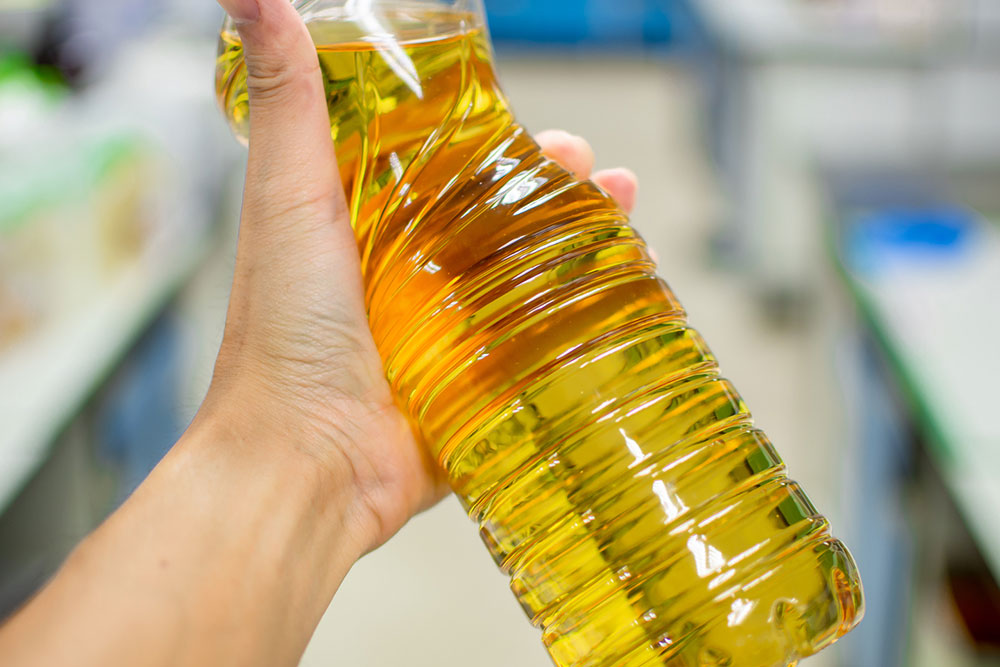Foods to avoid when one has multiple sclerosis

Adding certain foods to one’s daily meal regime can help one stay healthy. On the contrary, some foods may worsen one’s health. Further, the choice of foods in one’s meal is particularly crucial if one has multiple sclerosis. Poor food choices may trigger inflammatory changes that aggravate the condition. In addition, certain foods may result in worsening multiple sclerosis symptoms, such as bladder and bowel function, cognitive changes, and fatigue.
Damage to the myelin sheath triggers this autoimmune disease’s symptoms. This sheath sends signals between the spinal cord and brain to other body parts. A faulty sheath can cause the nervous system to misfire messages. So, following a nutritious meal plan can be useful when one has multiple sclerosis. Ideally, low-fat, fiber-rich, heart-healthy meals can be beneficial. It is important to learn about the different types of foods to avoid with multiple sclerosis.
Saturated fats
- Full-fat dairy
- Palm oil
- Coconut oil
Why avoid them?
Saturated fats cause inflammation and also also increase the probability of conditions, such as hyperlipidemia, hypertension, and cardiovascular diseases that make multiple sclerosis more challenging. In addition to this, it can also cause high cholesterol that can result in atherosclerosis, which can put one at risk of stroke and heart attack. So, it’s best to avoid foods that are high in saturated fats.
Refined sugar
- Powdered sugar
- Table sugar
- High fructose corn syrup
- Brown sugar
- Saccharin
- Sucralose
- Aspartame
Why avoid it?
Refined sugar is a double dose of nutritional bad news. Foods rich in refined sugar contain too many calories, which can result in fatigue. And for most people with multiple sclerosis, f atigue is a common disabling symptom. Further, too much-processed sugar and simple carbs can result in frequent mood swings, which may aggravate fatigue in multiple sclerosis patients.
Here are some alternatives to refined sugar that people with multiple sclerosis can consider.
- Dried fruit
- Date syrup
- Coconut sugar
- Maple syrup
- Fruits
- Honey
- Stevia
Sodium
Sodium in high quantities can trigger a relapse. While these findings are controversial, sodium is bad for those with multiple sclerosis. Further, multiple sclerosis patients usually intake more sodium than they realize because certain treatment options can cause salt retention in older adults.
Why avoid it?
Sodium can cause water retention, which leads to bloating. It can make one feel puffy and uncomfortable. In addition to this, b loating impairs movement, worsening the problem. It is advisable for one to not take more than 2300 mg of sodium per day. The ideal recommended limit is no more than 1500 mg per day for most adults, especially those with conditions like multiple sclerosis.
Packaged or processed foods
- Packaged crackers and cookies
- Pies
- Processed items filled with hydrogenated fats, shortening, and other trans fats
Packaged foods are part of several individuals’ daily meals. So, it may be impossible to eliminate them from one’s food regime, especially if one has a busy lifestyle. But, it’s best to limit their intake as much as possible.
Why avoid them?
Processed foods contain tans fats, which enhance inflammation in the body. Further, frequently eating such foods can increase the risk of developing vascular diseases, especially among multiple sclerosis patients.
Cow’s milk
It contains saturated fats and also has two proteins, which negatively impact people with multiple sclerosis. So, cow’s milk and the following foods made from it should be avoided when one has multiple sclerosis.
- Cheese
- Kefir
- Butter
- Yogurt
- Ice cream
Why avoid it?
Proteins in cow milk stimulate immune cells and cause lesions. These proteins mimic a part of the myelin sheath and trigger autoimmune reactions. Further, if individuals with multiple sclerosis are lactose intolerant, they may also experience inflammation and upset stomach from cow’s milk, aggravating the condition.
Refined carbs
- Breakfast cereals
- White bread
- White rice
Why avoid them?
Processed carbs instantly cause a spike in blood sugar levels. A sudden increase in blood sugar can impact one’s heart health and worsen multiple sclerosis symptoms. One may c onsider healthier alternatives to refined carbs, such as:
- Barley
- Whole-wheat pasta
- Whole-grain breads
- Brown rice
MSG
Monosodium glutamate or MSG has several negative implications. It is commonly found in s avory snacks as a flavor enhancer.
Why avoid it?
When people with multiple sclerosis have foods with MSG, it can make their immune system respond abnormally to the molecules in MSG. Further, MSG may damage the neurons and its r egular consumption can make multiple sclerosis symptoms worse. So, it is advisable to c heck the labels before buying packaged foods and avoid those that contain MSG.
Caffeine
- Coffee
- Cocoa
- Tea
- Energy drinks and bars
- Chocolates
Why avoid it?
Generally, people with multiple sclerosis have an overactive bladder (OAB). Caffeine is known to worsen this condition. So, caffeinated beverages and foods should be avoided to manage multiple sclerosis symptoms. Avoiding or limiting caffeine intake can also help prevent bladder irritation and issues.
Spicy foods
- Foods with red chilies
- Salsa and hot sauce
- Spicy curries
- Marinated foods
- Foods that contain horseradish
- Jalapeño peppers
Why avoid them?
As stated earlier, most multiple sclerosis patients may experience OAB. S picy foods irritate the bladder and make OAB worse. Although spicy foods are best avoided when one has multiple sclerosis, n ot everyone with the condition should completely eliminate spicy meals. One can m aintain a food journal to see if spicy foods trigger OAB.
One should consult with their doctor to learn more about foods to eat and avoid when one has multiple sclerosis.



